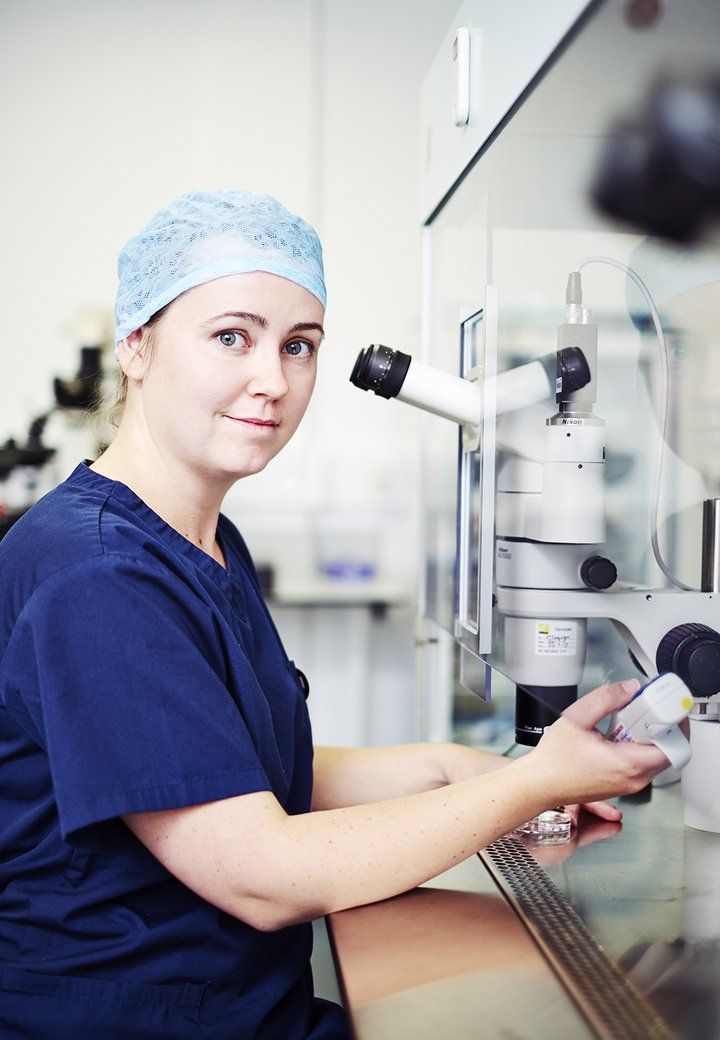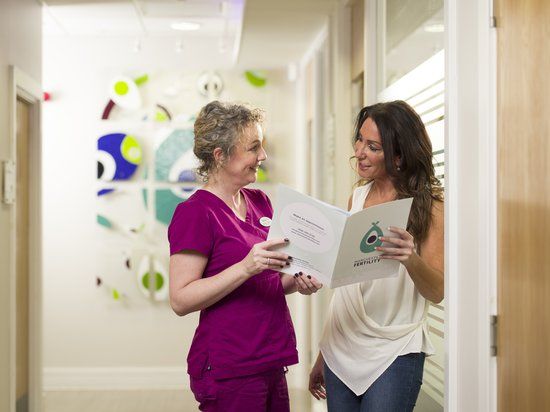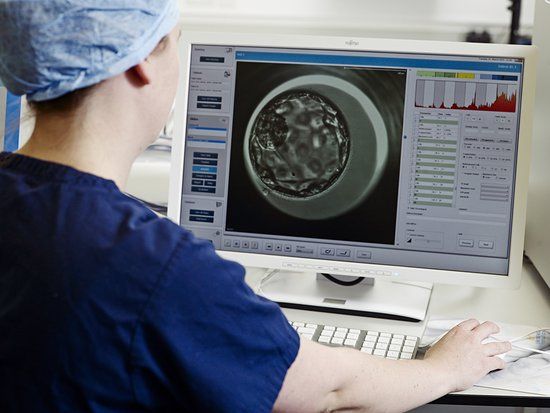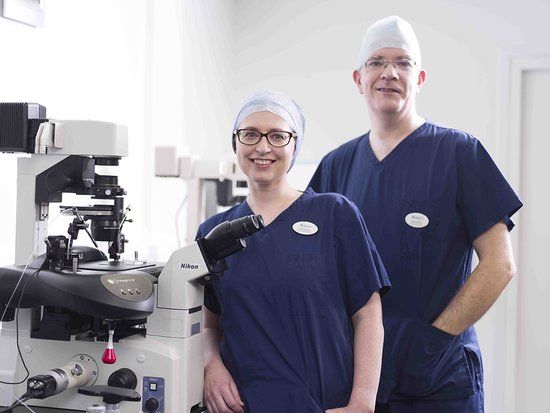
If you need IVF to have a baby, you may assume that the treatment is the same for everyone. The sperm and the egg are mixed together in a laboratory, the embryo transferred, pregnancy test completed.
But actually, the only thing that is ever ‘standard’ about your IVF treatment cycle at Manchester Fertility is the actual technique itself.
The rest of your IVF treatment is entirely bespoke and unique to you. There is actually no such thing as a ‘one size fits all’ standard IVF cycle:
Fertility consultation and treatment planning
No two treatment paths are ever the same, even though the diagnosis may be similar. Your fertility test results, your own diagnosis and your personal circumstances, and those of your partner, are all factors that dictate your treatment journey.
Some couples have relatively straightforward IVF treatment; others have more complicated cases that not only involve fertility problems for the woman, but the male partner too.
Our focus is always to create a treatment plan that overcomes your fertility challenges to give you the best outcome, using the combined expertise of our fertility consultants and their many different specialisms.
IVF treatment: the start of your cycle
The types of fertility drugs you take, the doses and the timings are all carefully tailored to you, to ensure your body responds in the right way so there are mature eggs to be used in your IVF cycle, whilst at the same time minimising your individual risk of complications such as Ovarian Hyperstimulation Syndrome (OHSS).
Fertilising your eggs
Although conventional IVF involves the mixing the sperm and egg together, you may need a more specialist approach. Dependent upon your diagnosis, and crucially that of your partner, your fertility consultant may recommend ICSI instead. This is where the egg is fertilised directly by a single, healthy sperm, and is often used when your partner has fertility issues caused by sperm disorders.
Embryo selection
Embryo selectionis also highly tailored depending on the number and quality of your embryos. You may choose to have your embryos cultured in our state-of-the-art EmbryoScope time-lapse incubators. These special incubators produce a detailed video of every stage of your embryo’s growth, giving our Embryologists crucial information about which of your embryos have the highest potential for pregnancy.
Alternatively, your embryos may be cultured in our standard incubators which have the same technology as the Embryoscope, without the facility to take pictures.
Embryo transfer
The date of your embryo transfer is dictated by the development of your embryos, the stages your embryos reach and whether your body is ready to accept the embryo. You can read more about embryo development and selection here.
At Manchester Fertility we follow a single embryo transfer policy in patients with a good IVF prognosis, which means you may be advised that transferring only one embryo is your best option for success. Or you may be advised, because of your age for example, that transferring two embryos is best for you.
Remaining embryos
You may only have one or two good quality embryos to use in your treatment cycle, or you may have multiple good embryos. Any remaining embryos you have can be frozen for use in future treatment cycles. We have excellent success rates for frozen embryo transfer. In 2015 49% of women under 35 who had frozen embryo transfer achieved pregnancy, highlighting the success of our advanced preservation techniques.
Post-embryo transfer
You will be given specific instructions tailored to you post embryo transfer, so that your fertility medications continue to support your body and encourage successful embryo implantation.
So although IVF may appear to be ‘standard,’ it is in fact a highly individualised process.
If you’d like to find out more about having IVF with us and our tailored approach to your treatment, book in with our Patient Advisors for a free one-to-one on 0161 300 2737 or make an appointment here.
Last updated: 8th June 2016








